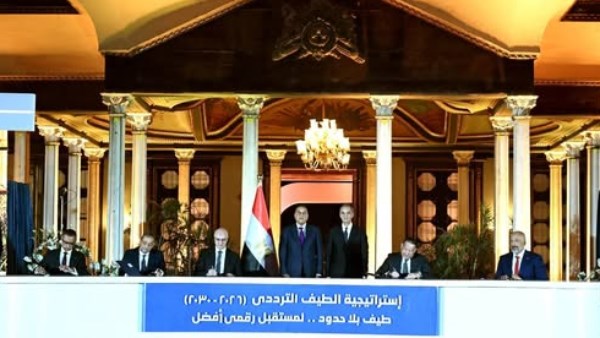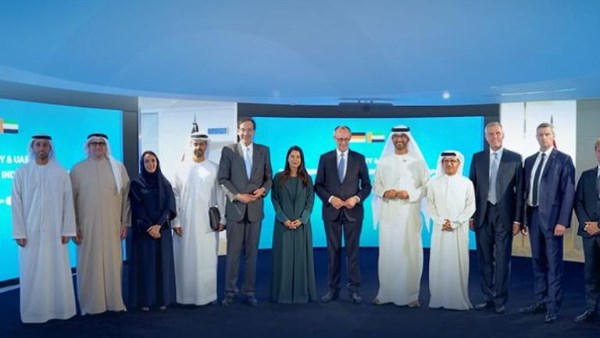
UNEP Programme warns solid waste threatens green economic،to grow 65%from2.3to3.8billion tonnes by2050

United Nations Environment Programme (UNEP) warns that municipal solid waste generation، which threatens green economic، is predicted to grow by more than 65 % from 2.3 billion tonnes in 2023 to 3.8 billion tonnes by 2050، while in 2020، the global direct cost of waste management was an estimated USD 252 billion، and when factoring in the hidden costs of pollution، poor health and climate change from poor waste disposal practices، the cost rises to USD 361 billion.

Global annual cost of municipal solid waste could double to $640.3 billion
United Nations Environment Programme (UNEP) reveals that without urgent action on waste management، by 2050 this global annual cost of municipal solid waste could almost double to a staggering USD 640.3 billion but when waste generation and economic growth are decoupled by adopting waste avoidance، sustainable business practices، and full waste management، could in fact lead to a full net gain of USD 108.5 billion per year and threatens green economic in the world.

United Nations Environment Programme (UNEP) states in its Global Waste Management Outlook 2024، that it is necessary to act now in order to avoid the worst scenario and provides guidance and suggested actions for Multinational development banks، national governments، municipalities، producers and retailers، the waste management sector as well as citizens.

Global Waste Management Outlook offers an updated assessment of global waste management
United Nations Environment Programme (UNEP) and the United Nations Environment Assembly (UNEA) reaffirm in its fourth session that the Global Waste Management Outlook offers an updated assessment of global waste management and an analysis of data concerning municipal solid waste management worldwide to enhance green economic.

The report’s modelling shows that getting waste under control by taking waste prevention and management measures could limit net annual costs by 2050 to USD 270.2 billion. However، projections show that a circular economy model، where waste generation and economic growth are decoupled by adopting waste avoidance، sustainable business practices، and full waste management، could in fact lead to a full net gain of USD 108.5 billion per year، UNEP Programme said.

An update on global waste generation and the cost of waste and its management
UNEP Programme (2024) in its Global Waste Management Outlook 2024: Beyond an age of waste: Turning rubbish into a resource، which jointly published with the International Solid Waste Association (ISWA)، provide an update on global waste generation and the cost of waste and its management since 2018.

UNEP Programme analysis uses life cycle assessments to explore what the world could gain or lose through continuing business-as-usual، adopting halfway measures، or committing fully to zero waste and circular economy societies.
Evaluation of 3 potential scenarios of municipal waste generation and management
United Nations Environment Programme report also evaluates three potential scenarios of municipal waste generation and management، examining their impacts on society، the environment، and the global economy، furthermore، it presents potential strategies for waste reduction and enhanced management، following the waste hierarchy، to treat all waste materials as valuable resources.

United Nations Environment Programme incdicates that multinational development banks and donors can have a rapid impact by supporting the replication and scaling up of proven zero waste and circular economy initiatives، while، national governments can legislate to deliver the waste hierarchy، incentivise zero waste business models، and apply producer responsibility fees to prioritise waste reduction.

Governments can deliver the greatest benefits for their populations
United Nations Environment Programme (UNEP) incdicates that governments can deliver the greatest benefits for their populations and protect natural resources and industries through the use of national expertise.

Integrated policies and support for municipalities، small and mediumsized enterprises (SMEs) and the informal sector can maximise resource efficiency as well as waste reduction commitments can also be used to attract climate finance، according to UNP Programme.

United Nations Environment Programme confirms that Municipalities can adopt inclusive approaches to reducing waste and making waste management affordable، for example by harnessing the expertise of informal waste workers and recognising women’s influence on waste generation and management.
Producers and retailers can reduce the costs of waste to society
United Nations Environment Programme encourages producers and retailers to reduce the costs of waste to society by taking due responsibility and pursuing zero waste business models، while businesses ought to avoid greenwashing and are encouraged to support government regulation، recognising the benefits of a level playing field.

United Nations Environment Programme (UNEP) calls everyone who can prevent unnecessary waste through reuse and refill، waste segregation and home composting، as well as using consumer power to support zero waste enterprises.
Actions must be taken urgently to halt waste growth
United Nations Environment Programme (UNEP) report cocludes that to prevent runaway negative impacts from municipal solid waste، actions must be taken urgently to halt waste growth and to shift towards zero waste and circular economy models.

Municipal solid waste management must be prioritised، in order to provide all communities with affordable services and end the harmful and widespread practice of open dumping and waste burning، while producers and retailers need to be motivated to provide goods and services in ways that avoid waste generation، as the most problematic and polluting materials should be phased out، recommends the United Nations Environment Programme.
- Climate change
- UNEP
- United Nations Environment Programme
- Intergovernmental Panel on Climate Change
- UNEP Programme
- solid waste
- green economic
- billion tonnes
- waste management
- Global annual cost
- municipal solid waste
- global waste management
- global waste generation
- waste growth
- Municipal solid waste management





-1120252475029447.jpg)















